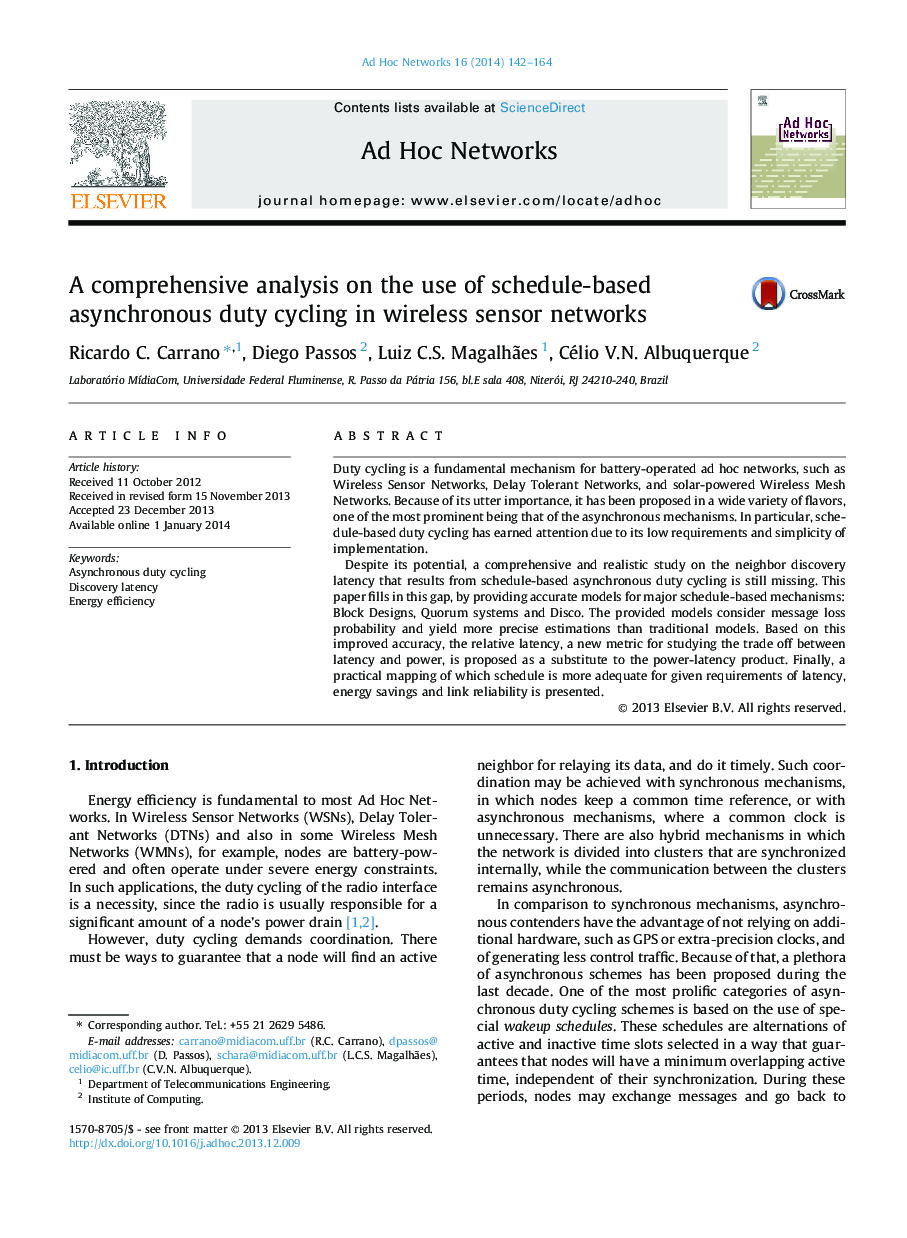| Article ID | Journal | Published Year | Pages | File Type |
|---|---|---|---|---|
| 444479 | Ad Hoc Networks | 2014 | 23 Pages |
Duty cycling is a fundamental mechanism for battery-operated ad hoc networks, such as Wireless Sensor Networks, Delay Tolerant Networks, and solar-powered Wireless Mesh Networks. Because of its utter importance, it has been proposed in a wide variety of flavors, one of the most prominent being that of the asynchronous mechanisms. In particular, schedule-based duty cycling has earned attention due to its low requirements and simplicity of implementation.Despite its potential, a comprehensive and realistic study on the neighbor discovery latency that results from schedule-based asynchronous duty cycling is still missing. This paper fills in this gap, by providing accurate models for major schedule-based mechanisms: Block Designs, Quorum systems and Disco. The provided models consider message loss probability and yield more precise estimations than traditional models. Based on this improved accuracy, the relative latency, a new metric for studying the trade off between latency and power, is proposed as a substitute to the power-latency product. Finally, a practical mapping of which schedule is more adequate for given requirements of latency, energy savings and link reliability is presented.
